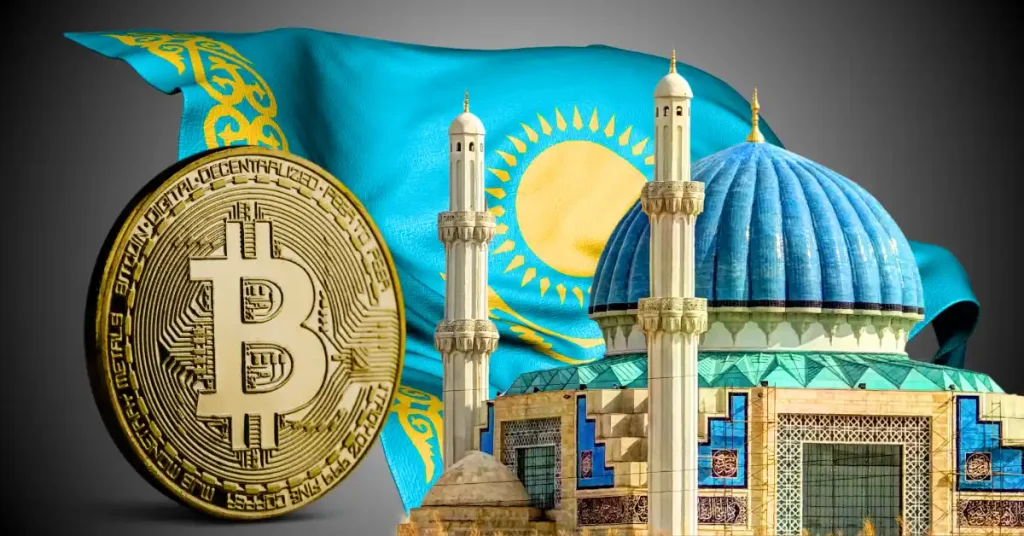Kazakhstan’s Bold Move: National Crypto Reserve Launch by 2026 Set to Reshape Digital Finance
Central Asia's crypto powerhouse makes its biggest bet yet—state-backed digital asset reserves hitting the national balance sheet.
The Strategy
Kazakhstan isn't just mining Bitcoin—it's stacking it. By 2026, the nation plans to transform its treasury with a sovereign crypto reserve, positioning itself ahead of traditional financial heavyweights. No more waiting for IMF approvals or dollar-driven liquidity crunches.
Why It Matters
This isn’t another central bank digital currency play. Kazakhstan is going straight for self-custody—holding actual Bitcoin and major altcoins. Think of it as a gold reserve, but faster, borderless, and far harder to freeze.
Global Ripples
Watch other resource-rich nations follow. When oil, metals, and crypto combine, geopolitical leverage shifts. Especially when the move subtly hints: 'we trust code more than your currency.'
One cynical take? It’s the ultimate 'hedge against the bankers who still think SWIFT is cutting-edge.'

Kazakhstan is making a bold move into the digital age, with plans to launch a state-backed cryptocurrency reserve and implement sweeping fintech reforms by 2026. President Kassym-Jomart Tokayev aims to integrate cryptocurrencies and tokenized assets into the country’s financial backbone, making Kazakhstan one of the few nations openly backing crypto at a national level.
National Crypto Reserve
In his latest address, Tokayev proposed the creation of a State Digital Asset Fund under the National Bank’s investment arm. This fund will hold a reserve of top cryptocurrencies and tokenized assets, essentially a digital treasure chest for the nation.
To make this vision possible, lawmakers are expected to pass a digital asset law by 2026, offering clear rules for tokenized platforms and fintech startups. crypto influencer Mario Nawfal called this the “snowball effect,” where one country’s adoption sparks momentum worldwide.
Digital Tenge and CryptoCity
Kazakhstan is already ahead with its digital tenge, first piloted in 2023 and integrated into public budgets by 2025. It’s now used in financing government projects and could soon become a central tool for everyday payments.
Tokayev’s vision also includes CryptoCity in Alatau, a futuristic hub where crypto WOULD be seamlessly used for groceries, bus tickets, and public services. He described it as “the future of Kazakhstan,” where technology blends with daily life.
- Also Read :
- CleanCore Acquires 285.42M Dogecoin and Sets Target of 1B DOGE in 30 Days
- ,
Bitcoin ETF and Mining Power
In August, Kazakhstan launched Central Asia’s first spot Bitcoin ETF on the Astana International Exchange, giving investors a regulated way to gain exposure to Bitcoin. This complements its existing strength as a major Bitcoin mining hub, which at one point powered nearly 13% of the global network, though it has faced challenges like illegal mining and energy shortages.
Leading the Digital Finance Race
With a national crypto reserve, a functioning digital currency, an experimental CryptoCity, and the region’s first bitcoin ETF, Kazakhstan is positioning itself as a digital finance trailblazer. If Tokayev’s ambitious plan succeeds, the country could set an example for how nations can integrate crypto into their economies and daily lives.
Never Miss a Beat in the Crypto World!Stay ahead with breaking news, expert analysis, and real-time updates on the latest trends in Bitcoin, altcoins, DeFi, NFTs, and more.
FAQs
When will Kazakhstan pass the digital asset law?President Tokayev has asked lawmakers to finalize a comprehensive digital asset law byto regulate tokenized platforms and fintech startups.
Why is Kazakhstan creating a crypto reserve?Kazakhstan wants to build ato hold top cryptocurrencies and tokenized assets. The reserve is meant to secure the nation’s financial future, diversify its economy, and strengthen its position in global digital finance.
How will the digital tenge change payments in Kazakhstan?The, Kazakhstan’s CBDC, is already used in government budgets. By 2026, it is expected to become part of everyday payments, making transactions faster, cheaper, and more transparent across the country.
What is the purpose of Kazakhstan’s CryptoCity project?is designed as a fully digital hub where people can pay for groceries, transport, and public services using crypto. It aims to showcase how blockchain can be integrated into daily life.
Is Kazakhstan becoming a crypto-friendly country?Yes. With its, Kazakhstan is positioning itself as one of the most crypto-friendly countries in the world.


